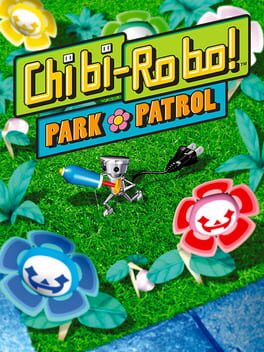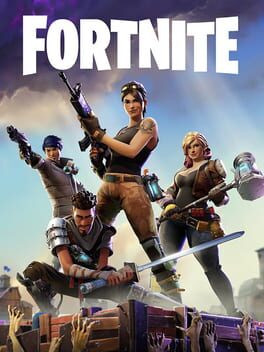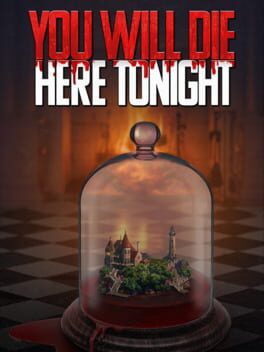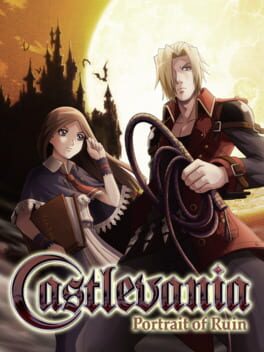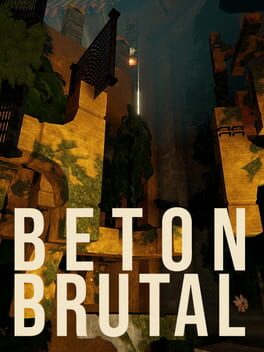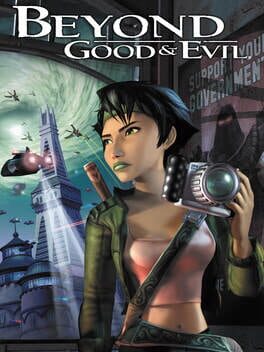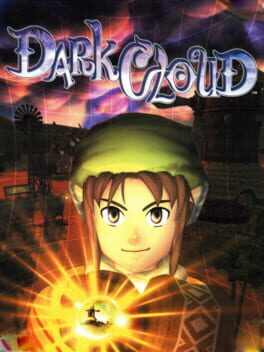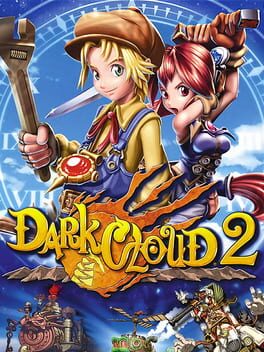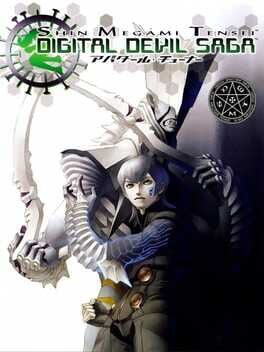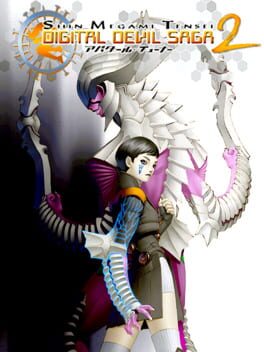Curdalu
81 reviews liked by Curdalu
If experimentation wasn't the norm in the Chibi-Robo series, then Park Patrol might've been the black sheep. Replace the action-adventurism of the original game where you explore an expansive house with environmental activism about managing a park... then add some fighting in there.
If Park Patrol can be compared to really anything, it must be the Animal Crossing series. A game about customization, management, and completionism of your park (as well as managing your 'money', which in this case is literally your power supply).
The main difference is Park Patrol does actually have a story in there. Without spoiling much, it is a pretty creative take on the ways we neglect our environment, and it doesn't hide it's honesty at parts, in that it doesn't just remain a fictional parable but also indicates that us in the real world have things we could be doing better. "Remember, Miasmo (the big bad) is lurking behind every exhaust pipe and smokestack, waiting in the shadows to make his return" or something like that as is said at the end of the game.
Essentially, the game fits the system of having different living toys (as is the norm in all Chibi-Robo games) who you become friends with. In this case, you have toys like a mascot for an American football team, one of the free rangers from the past game, and a stereotypically French marionette who wants to be freed from his strings, among other toys. I can safely say that all their designs were smart and creative, and they were all lovable characters with personality quirks of their own.
Basically, you recruit for them to work for you at the park. You pay them in "watts" (like I said, your power supply) to build structures, or terraform the land. Eventually, they run out of watts, so you have to recharge them, and each time you do they will advance a little in their own story. For example, the Free Ranger egg gets a new job after wishing for one (won't spoil what it is). They advance in their story by interacting with the other toys you have in your team, if they have power left.
The main thing of the game is basically growing flowers, which you do via giving them water (obv) and dancing along with a boombox (not so obv). The dancing part is a pretty cool system, but it was a little hard to figure out at first. I eventually got used to it. Basically, you have to spin the outer circle of the "record" that appears on screen and you have to do it at a certain constant speed. When you do that, you will get a score, if it's above 70 the plants will throw off seeds that multiply the number of flowers. After a certain amount of flowers are grown, the space they are on will turn green, and one of the objectives of the game is to turn the whole park green.
Now, I completed the main story and I still have not turned the whole park green (though I've turned most of it green). At first, it was a repetitive venture, with the assistant in this game, Chet (RIP Telly, in this game apparently) being kind of annoying and saying the same things over and over, with the same high pipsqueak voice. Sorry Chet, love you though.
The routine is going to feel very repetitive in this game at first. It basically goes like: plant flowers, get toys to do work for you, then when they are out of commission go back to town the recharge them. I'll give it to the game though, it does get much better with variety, and while not having "as much" to do as the original Chibi-Robo, there was still a lot to do. You get new park projects, like games you can build (a bowling game for example), and there is plenty to do in town as you can meet new toys over the course of the game.
I was really impressed with how well they managed to leave room for a story in a simulation/management game.
Oh yeah, the game has battles where you have to fend off "smoglings" (and later, "Smoglobs") from destroying your plants. This was kind of annoying because I could never get to the smoglings fast enough, and the only vehicle that I found easy to control was the bike (the car(s) are surprisingly hard to control).
Overall though, a surprisingly fun and addictive game. Frankly, I prefer it to Animal Crossing: Wild World as my favorite simulation game on the DS. While it might not be the feast that the other Chibi Robo games could be, namely the original and Okaeri!, it is still a very very worthy and smart game that did a lot of revolutionary stuff for a DS sim game.
If Park Patrol can be compared to really anything, it must be the Animal Crossing series. A game about customization, management, and completionism of your park (as well as managing your 'money', which in this case is literally your power supply).
The main difference is Park Patrol does actually have a story in there. Without spoiling much, it is a pretty creative take on the ways we neglect our environment, and it doesn't hide it's honesty at parts, in that it doesn't just remain a fictional parable but also indicates that us in the real world have things we could be doing better. "Remember, Miasmo (the big bad) is lurking behind every exhaust pipe and smokestack, waiting in the shadows to make his return" or something like that as is said at the end of the game.
Essentially, the game fits the system of having different living toys (as is the norm in all Chibi-Robo games) who you become friends with. In this case, you have toys like a mascot for an American football team, one of the free rangers from the past game, and a stereotypically French marionette who wants to be freed from his strings, among other toys. I can safely say that all their designs were smart and creative, and they were all lovable characters with personality quirks of their own.
Basically, you recruit for them to work for you at the park. You pay them in "watts" (like I said, your power supply) to build structures, or terraform the land. Eventually, they run out of watts, so you have to recharge them, and each time you do they will advance a little in their own story. For example, the Free Ranger egg gets a new job after wishing for one (won't spoil what it is). They advance in their story by interacting with the other toys you have in your team, if they have power left.
The main thing of the game is basically growing flowers, which you do via giving them water (obv) and dancing along with a boombox (not so obv). The dancing part is a pretty cool system, but it was a little hard to figure out at first. I eventually got used to it. Basically, you have to spin the outer circle of the "record" that appears on screen and you have to do it at a certain constant speed. When you do that, you will get a score, if it's above 70 the plants will throw off seeds that multiply the number of flowers. After a certain amount of flowers are grown, the space they are on will turn green, and one of the objectives of the game is to turn the whole park green.
Now, I completed the main story and I still have not turned the whole park green (though I've turned most of it green). At first, it was a repetitive venture, with the assistant in this game, Chet (RIP Telly, in this game apparently) being kind of annoying and saying the same things over and over, with the same high pipsqueak voice. Sorry Chet, love you though.
The routine is going to feel very repetitive in this game at first. It basically goes like: plant flowers, get toys to do work for you, then when they are out of commission go back to town the recharge them. I'll give it to the game though, it does get much better with variety, and while not having "as much" to do as the original Chibi-Robo, there was still a lot to do. You get new park projects, like games you can build (a bowling game for example), and there is plenty to do in town as you can meet new toys over the course of the game.
I was really impressed with how well they managed to leave room for a story in a simulation/management game.
Oh yeah, the game has battles where you have to fend off "smoglings" (and later, "Smoglobs") from destroying your plants. This was kind of annoying because I could never get to the smoglings fast enough, and the only vehicle that I found easy to control was the bike (the car(s) are surprisingly hard to control).
Overall though, a surprisingly fun and addictive game. Frankly, I prefer it to Animal Crossing: Wild World as my favorite simulation game on the DS. While it might not be the feast that the other Chibi Robo games could be, namely the original and Okaeri!, it is still a very very worthy and smart game that did a lot of revolutionary stuff for a DS sim game.
Sonic Dash
2013
wanted something mindless to do on my phone and was fond of infinite runners back in the day. an infinite runner featuring sonic seems like the perfect fit. and it is hard to mess up, but the characters are so big and awkward and the obstacles can get so tight, and when you start to get up there in speed, it's hard to even see what obstacles are coming next. and I get why a degree of unfairness is a cornerstone of the genre, it gets to be a bit too annoying than fun.
Fortnite
2017
Probably the most fun I've had in this series since Ecclesia. It's not perfect, it's a little bit too easy for my liking, but man it's so fun nonetheless and does a ton of things right like the controls and synergy between the characters. Solidifies the DS as THE best set of games in the series. Probably the best soundtrack of the 3 as well.
Also it is cute. Cute game that is cute and makes you go ":)"
Also it is cute. Cute game that is cute and makes you go ":)"
Beton Brutal
2023
God Hand
2006
Before there was Oblivion with guns, there was Resident Evil 4 without guns. More so than with respect to even its emphasis on crowd control, dynamic difficulty scaling or abundance of contextual carpal tunnel generators, God Hand’s arguably most reminiscent of its spiritual cousin in terms of how forward-thinking it is.
An action game likes convenience. To be able to jump in and fight what you want, when you want with as little fluff as possible’s part of why DMC’s Bloody Palace (or equivalents) became a genre mainstay, why Bayonetta 3’s revamped chapter select system is probably the single most underappreciated feature of 2022 and why the not-infrequent complaint about Nioh having a level select menu is so mystifying. Play enough games from when this family tree was still in its relative infancy and you’ll likely realise how easy it is to take such features for granted, which is why it's so cool that God Hand had something like the Fighting Ring so early on in the genre’s history.
A practice area coupled with all sorts of bespoke combat encounters you can tackle and/or fail any number of times, totally free of consequence, would be a natural fit for any action game, but it’s especially great for God Hand because of how its equipment system works. There’s not just a litany of attacks at your disposal, each with their own distinct properties and niches, but you can also equip any of them in any order and assign them to any button. It’s an unprecedented degree of customisation that might’ve otherwise been overwhelming without an area like this, and which I’m not sure’s been matched before or since. The likes of The Wonderful 101, God of War 3 and DMC5 might let me switch from one weapon to any other in any order, but not even they let me build a moveset out of pimp slaps if I feel like it, purely because I can.
The draw of experimentation that comes with this is hampered a bit by certain rough patches – for example, multi-hit attacks occasionally feel disincentivised in a way that doesn’t seem intentional because of how frequently enemies block and counterattack as the difficulty level increases (especially on Hard where you’re permanently at the highest), while low profile moves which dodge enemies’ high attacks for some reason don’t avoid jumping grabs – but what helps keep the combat malleable despite these is the counterhit system. Interrupt an enemy or boss’ attack with one of your own and they’ll varyingly flinch, be stunned, get juggled or launched, even if none of those properties work on them normally. It creates an engaging sense of back-and-forth and ensures you’re never completely strapped for options no matter how suffocating the situation you find yourself in or which moves you've equipped, especially when taken in tandem with being able to cancel any of Gene’s attacks at any point with one of three different dodges (which, provided your thumbs can remain intact, is also particularly helpful for circumventing the aforementioned issues with multihit attacks).
On that point, God Hand’s handling of defence is something more games could probably stand to learn from. The Great Sensei is a sink or swim moment in this respect and, in my view, the embodiment of what makes it shine, stringing together high attacks, vertical attacks and crowd control in blistering succession that demands you have an iron grip on each of Gene’s dodges and what they’re for like no boss before or after him. He would still be infamously difficult because of all this in a vacuum, but I think part of why he’s such a challenge also stems from how many other games with real-time combat systems treat their (often singular) dodge as a one-size-fits-all invincibility bubble and how tough it can be to break the conditioning that that sort of standardisation instils. Lost Judgment is another 3D beat-‘em-up which plays excellently, but despite being 15 years God Hand’s junior on platforms multitudes more powerful, it can’t help but feel comparatively primitive whenever Yagami “evades” a sweep kick by ducking his head. In contrast, God Hand’s more nuanced combination of side/backward dodges and bobbing & weaving reminded me loosely of Soulcalibur, which on top of its counterhit system makes one wonder how much other action games might benefit from leaning into their common ground with fighting games.
Not all of God Hand’s boss fights or enemies utilise its mechanics equally well, the final boss in particular running the risk of jettisoning the player’s goodwill into the bin, but some scattershot ups and downs are to be expected when your game is so bonkers at every turn. It speaks to how entertaining its stages manage to be, both conceptually and in design, that you end the game with no further mechanics than what you start with and it never once feels stale. There’s an inherent excitement that comes with cramming so many clowns, demons, cowboys, Venetian canals, floating pyramids and other seemingly disparate ideas that you don’t know what to expect next; while some might be surprised at the fact that he considers Resident Evil 4 to be the opposite, it’ll likely shock nobody that Shinji Mikami feels that God Hand is the game with the most amount of himself in it. What results is no doubt chaotic, but more than worth looking past the imperfections of for experiencing what’s essentially his and a bunch of other loveable goofballs’ collective personality transcribed onto a disc, which also happens to be perhaps the only game that feels like an interactive version of an action film’s fight choreography.
If you happen to still have a PS2 lying around, I can attest that the ~80 gamerbux that used copies of this bad boy go for are worth it. You may not be you know who, but you’ll feel like it by the end.
An action game likes convenience. To be able to jump in and fight what you want, when you want with as little fluff as possible’s part of why DMC’s Bloody Palace (or equivalents) became a genre mainstay, why Bayonetta 3’s revamped chapter select system is probably the single most underappreciated feature of 2022 and why the not-infrequent complaint about Nioh having a level select menu is so mystifying. Play enough games from when this family tree was still in its relative infancy and you’ll likely realise how easy it is to take such features for granted, which is why it's so cool that God Hand had something like the Fighting Ring so early on in the genre’s history.
A practice area coupled with all sorts of bespoke combat encounters you can tackle and/or fail any number of times, totally free of consequence, would be a natural fit for any action game, but it’s especially great for God Hand because of how its equipment system works. There’s not just a litany of attacks at your disposal, each with their own distinct properties and niches, but you can also equip any of them in any order and assign them to any button. It’s an unprecedented degree of customisation that might’ve otherwise been overwhelming without an area like this, and which I’m not sure’s been matched before or since. The likes of The Wonderful 101, God of War 3 and DMC5 might let me switch from one weapon to any other in any order, but not even they let me build a moveset out of pimp slaps if I feel like it, purely because I can.
The draw of experimentation that comes with this is hampered a bit by certain rough patches – for example, multi-hit attacks occasionally feel disincentivised in a way that doesn’t seem intentional because of how frequently enemies block and counterattack as the difficulty level increases (especially on Hard where you’re permanently at the highest), while low profile moves which dodge enemies’ high attacks for some reason don’t avoid jumping grabs – but what helps keep the combat malleable despite these is the counterhit system. Interrupt an enemy or boss’ attack with one of your own and they’ll varyingly flinch, be stunned, get juggled or launched, even if none of those properties work on them normally. It creates an engaging sense of back-and-forth and ensures you’re never completely strapped for options no matter how suffocating the situation you find yourself in or which moves you've equipped, especially when taken in tandem with being able to cancel any of Gene’s attacks at any point with one of three different dodges (which, provided your thumbs can remain intact, is also particularly helpful for circumventing the aforementioned issues with multihit attacks).
On that point, God Hand’s handling of defence is something more games could probably stand to learn from. The Great Sensei is a sink or swim moment in this respect and, in my view, the embodiment of what makes it shine, stringing together high attacks, vertical attacks and crowd control in blistering succession that demands you have an iron grip on each of Gene’s dodges and what they’re for like no boss before or after him. He would still be infamously difficult because of all this in a vacuum, but I think part of why he’s such a challenge also stems from how many other games with real-time combat systems treat their (often singular) dodge as a one-size-fits-all invincibility bubble and how tough it can be to break the conditioning that that sort of standardisation instils. Lost Judgment is another 3D beat-‘em-up which plays excellently, but despite being 15 years God Hand’s junior on platforms multitudes more powerful, it can’t help but feel comparatively primitive whenever Yagami “evades” a sweep kick by ducking his head. In contrast, God Hand’s more nuanced combination of side/backward dodges and bobbing & weaving reminded me loosely of Soulcalibur, which on top of its counterhit system makes one wonder how much other action games might benefit from leaning into their common ground with fighting games.
Not all of God Hand’s boss fights or enemies utilise its mechanics equally well, the final boss in particular running the risk of jettisoning the player’s goodwill into the bin, but some scattershot ups and downs are to be expected when your game is so bonkers at every turn. It speaks to how entertaining its stages manage to be, both conceptually and in design, that you end the game with no further mechanics than what you start with and it never once feels stale. There’s an inherent excitement that comes with cramming so many clowns, demons, cowboys, Venetian canals, floating pyramids and other seemingly disparate ideas that you don’t know what to expect next; while some might be surprised at the fact that he considers Resident Evil 4 to be the opposite, it’ll likely shock nobody that Shinji Mikami feels that God Hand is the game with the most amount of himself in it. What results is no doubt chaotic, but more than worth looking past the imperfections of for experiencing what’s essentially his and a bunch of other loveable goofballs’ collective personality transcribed onto a disc, which also happens to be perhaps the only game that feels like an interactive version of an action film’s fight choreography.
If you happen to still have a PS2 lying around, I can attest that the ~80 gamerbux that used copies of this bad boy go for are worth it. You may not be you know who, but you’ll feel like it by the end.
Sniper Elite III
2014
Playing Sniper Elite III was a bit like finding the missing link in human evolution as far as it's own series goes. I had previously played 4 with it's huge open maps, followed by V2 with it's incredibly linear level structure. Sniper Elite III hits somewhere in the middle and feels like the worst game of the 3 for it. It doesn't have the tight design of 2 or the absolute freedom of exploration of 4. It should be in the goldilocks zone but actually ends as the worst of both. The game's setting also doesn't do it huge favors with lighting and level design. It feels like a huge amount of bloom, often limited fov when zooming in on the distance which is pretty awful for a sniper title.
The biggest offence though is the lack of slow motion cams of bullets x-ray smashing Nazi fascists in the face. It pulls a bit of a switcharoo anyway, I play these games co-op with a friend and the first level on the first 3 enemies we get the cam, one of the best parts of the series. We're laughing, excited. Then not another one for the rest of the game learning it's removed in co-op except those first 3 enemies.
Our disappointment was palpable.
All that said the game is still pretty fun overall. planning attacks with a friend in co-op to try and be stealthy as possible, the ability to customize load outs, and the excellent performance. It was a cross gen PS3, PS4 title yet runs incredibly smooth 60fps which their later game Strange Brigade couldn't match at all is an odd one.
All in all this game is fine. it's the start or prototype for what the series will become. It almost never goes on sale however and when you can get Sniper Elite 4 ultimate edition with all DLC in sales for £7-8 all the time? It's not really worth going back to this except for curiosity.
+ Relatively fun to play over a few evenings.
+ Excellent feeling performance on PS5.
- No X-ray kills in co-op.
- Level design and visuals feel a bit meh.
- Can get better games in the series much cheaper.
The biggest offence though is the lack of slow motion cams of bullets x-ray smashing Nazi fascists in the face. It pulls a bit of a switcharoo anyway, I play these games co-op with a friend and the first level on the first 3 enemies we get the cam, one of the best parts of the series. We're laughing, excited. Then not another one for the rest of the game learning it's removed in co-op except those first 3 enemies.
Our disappointment was palpable.
All that said the game is still pretty fun overall. planning attacks with a friend in co-op to try and be stealthy as possible, the ability to customize load outs, and the excellent performance. It was a cross gen PS3, PS4 title yet runs incredibly smooth 60fps which their later game Strange Brigade couldn't match at all is an odd one.
All in all this game is fine. it's the start or prototype for what the series will become. It almost never goes on sale however and when you can get Sniper Elite 4 ultimate edition with all DLC in sales for £7-8 all the time? It's not really worth going back to this except for curiosity.
+ Relatively fun to play over a few evenings.
+ Excellent feeling performance on PS5.
- No X-ray kills in co-op.
- Level design and visuals feel a bit meh.
- Can get better games in the series much cheaper.
Beton Brutal
2023
Beton Brutal's focus on precision platforming results in a tough, tense experience that should very well resemble drinking Dayquil for the flavor to anyone not looking to speedrun it. I disagree with that notion. If you have the patience for it, Beton will reward your curiosity. The timer in the corner and set-dressing of all attempts as runs are both illusions. You can take as long as you want to complete this, and there's no shame in that. There's an enthrallingly visceral joy in finally understanding how the game wants to proceed. Sometimes, it comes to you naturally, and sometimes, the game can work like a bit of a puzzle box focused on climbing. I still haven't reached the top of the tower yet, I keep falling. But I feel content with that because it's been a lot of fun so far.
I totally understand that this won't be to everyone's taste. But I've been having a blast with it.
I totally understand that this won't be to everyone's taste. But I've been having a blast with it.
